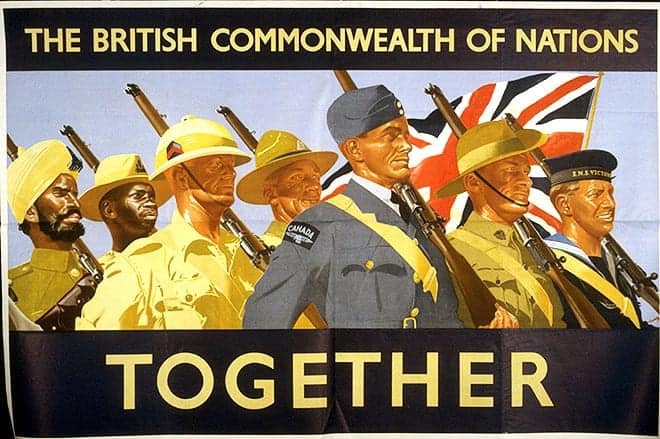Sask. Affordability cheque not for the wellbeing of residents

Cheques are being tossed out like dog treats
The Saskatchewan Affordability Tax Credit (SATC) is a program that offers a one-time payment of $500. This payment will be made to all eligible Saskatchewan residents sometime in the fall. The program is meant to tackle inflation as well as the high cost of living. SATC is refundable and non-taxable. In essence, it’s a tax credit that will be implemented out of the realm of the tax system as a way to expedite payments to eligible recipients across Saskatchewan.
The payment does not take into account the income levels of residents or whether they receive social assistance benefits from the Government of Saskatchewan. Furthermore, a large portion of the payments will be sent to recipients through mail this fall. An individual is eligible to receive the SATC if they have filed income tax return for 2021 by October 31, 2022, if they have filed their 2022 tax return as a resident of Saskatchewan, and if they are 18 years or older as of December 31, 2022. The Government of Saskatchewan does not require recipients to formally apply in order to receive the payment.
The provincial government feels that it is now prepared to assist residents. Premier Scott Moe has been hinting for a few months that relief for residents was on the way. “You own the resources and you should benefit when those resource prices are high,” he stated. “So, this fall, we’ll be sending a $500 affordability tax credit cheque to everyone in Saskatchewan aged 18 and older to help with those rising costs.”
Finance Minister Donna Harpauer delivered the budget in March. At the time, the deficit of Saskatchewan was on the way to being $463 million. The government also emphasized that it would begin charging provincial sales tax on specific items on top of other new fees. Moe stated that Harpauer will announce other important features such as paying down debt and assisting small businesses in Saskatchewan. “We are able to do these things because we have a strong and growing economy. Our industries are driving growth, they’re creating jobs and they’re keeping Saskatchewan strong, and that means that we are able to help you deal with these rising costs. That’s a growth that works for everyone.” he stated.
As a response to the news, some have felt that the relief has arrived much too late and is nowhere near enough for resident to keep up with the rising cost of living. “They should have offered this relief months ago as we’ve been calling for, in addition to scrapping their new taxes, utility increases, and fee hikes” stated NDP Finance Critic Trent Wotherspoon.
“While Saskatchewan families have been struggling with historic inflation rates, rising cost of living expenses and record gas prices, the Saskatchewan Party sat on billions in windfall revenues. […] Not only did they sit on these windfall revenues, but they also increased taxes and utility rates, adding to the hardships many Saskatchewan families and businesses were already facing,” Wotherspoon highlighted. “This money belongs to the people of Saskatchewan, not the Sask. Party,” he later noted. “The Sask. Party will consistently put their political interests above the well-being of the people of Saskatchewan, as they have done with these ‘buy election bucks.’”
“It’s been nearly six months that we’ve been calling on this government to act on the generational affordability crisis crippling this province and impacting so many families during what should be a summer of fun and enjoyment,” Aleana Young, Saskatchewan NDP economic critic pointed out.
Furthermore, along with the rising costs of gas and groceries, college tuition is another issue that has been at the heart of university students. As tuition is raised each year, more and more students are forced to rely on student loans which leave them in further debt. Moreover, the price of textbooks keeps going up. The Canadian Federation of Students stated that the cost of textbooks rose 2.44 times the rate of inflation between 2008 and 2015 alone. According to The Education Data Initiative, the average university student spent between $628-$1,471 on books and supplies between the 2021 and 2022 academic year.
On the other hand, The Canadian Federation of Students states that textbook prices have increased by over 800 per cent. This is double the growth of the rate of housing inflation alone. Some students at the University of Regina such as Aya I, a Sociology major, end up paying hundreds if not thousands of dollars every year on textbooks alone. $500 does not even begin to cover the cost of textbooks in certain faculties, let alone tuition or bills and groceries.
900,000 cheques will be mailed out this fall, costing the Government of Saskatchewan $450 million. There has been public outroar urging the government to set aside these funds for other uses such as healthcare and infrastructure. Local Saskatchewan residents on r/Saskatoon weighed in on their thoughts. Some such as u/Tiny-Wishbone317 stated “they claim no extra money for healthcare, education, and social programs, but we somehow have money for this?!? Make it make sense.” “This will surely help the healthcare crisis…I wonder how busy the emergency rooms will be when the cheque comes out” wrote u/Stoon5555. Economics, justice, and policy professor Lori Williams at Mount Royal University pointed out to CBC that the money would have been a better fit for health care and education. Williams noted that the SATC infringes on the government’s argument that it requires more funds from Ottawa in order to be able to fund healthcare. The Saskatchewan Federation of Labour, a representative of more than 100,000 workers across the province, highlighted that it urges the government to focus on measures that will decrease the cost of living in the long-run such as raising the minimum wage.









